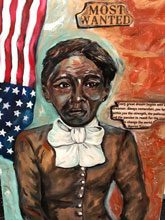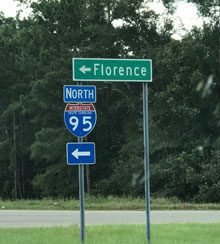Some of life’s best lessons can be learned on a fishing pier. Folks of all ages trudge down weatherworn, wooden planks, fishing rods and bait buckets in hand.  Tackle boxes chatter with lead weights and barbed hooks, and rubbery shrimp and multi-colored worms cast in plastic jelly, make their homes in foldout trays. Passersby offer keen words of advice like, “You can’t catch anything if your hook isn’t in the water,” or “Maybe you aren’t holding your mouth right” when you answer their questions about the state of your luck.
Tackle boxes chatter with lead weights and barbed hooks, and rubbery shrimp and multi-colored worms cast in plastic jelly, make their homes in foldout trays. Passersby offer keen words of advice like, “You can’t catch anything if your hook isn’t in the water,” or “Maybe you aren’t holding your mouth right” when you answer their questions about the state of your luck.
Every fisher person walking the stretch of an ocean pier is in search of the elusive catch. We stare into the gray-green water for hours, salty air curling our hair in rollers of humidity; our noses filled with the leftover smells of filleted fish. A kind of quiet contemplation takes place as we ponder the mysteries living just beneath the wavy surface, or look out on the vast infinity of the horizon stretched out in a straight line, interlocking sky and sea in a tight union, like the plastic mouth of a resealable Ziploc bag.
Over the Fourth of July, I had the joy of taking my nephew Luke to the Hunting Island State Park Fishing Pier on a couple of fishing expeditions. Our first excursion included Grandma, Uncle Mac, and the two dogs – Cokie and Toby. The second time out, it was just Luke, Toby and me in search of hungry shark, or the occasional whiting. We would settle for a blue crab just to have something tug on our lines.
The people Luke and I passed to get from one end of the pier to the other were diverse in culture, socio-economic backgrounds, age, weight, sex and expertise. Some folks fished, while others crabbed. One woman sauntered along with her camera, pausing to assess the sunset, a mix of whispering clouds and muted light. Others were just out for a twilight stroll, soaking in the sights and sounds of sea, surf and sky, enjoying the company of one another, peering into bait buckets, curious to see if anyone caught anything.
Luke and I took frozen shrimp, cut bait, and six little fish he and Uncle Mac had caught in a shrimp net, scouring tidal ponds on the beach earlier that day. Luke became an expert at peeling shrimp and threading them along the J-curve of the fishing hook, and his casting got better and better as the holiday weekend passed by. None of our efforts resulted in success. Instead, Toby worked on trying to pry dried up bait from between the pier’s crevices with his toenails, and Luke followed suit with a group of teenagers fishing beside us who had taken to throwing their bait into the air to scavenging seagulls.
Time floats on the rising tide that slaps the fishing pier’s legs, and the constant current pushing toward the shoreline moves the quiet mind to memory. My dad fished on this same pier a little over twenty years ago. I could hear him imitate the sound of a zinging fishing line tight with a catch, and see him tie a rig to my line as I now tied one to Luke’s. As I attempted to fillet a mullet with my father’s knife, his hands became visible to me, slicing through the slippery skin of an inky squid, carving out small squares of bait to cast off piers in Maryland or Delaware for blowfish or flounder. I told Luke about Paka. I told him that Paka was a very good fisherman and when I was silent, I remembered that my days with my dad on other fishing piers were some of the most precious and serene times I have ever known.
On our way back to the condo, Luke and I looked for dolphin as we crossed the bridge from Hunting to Fripp Island and I pointed out an osprey perched high on a telephone pole, his nest of stray branches and sticks outlining the sea hawk’s royal silhouette, a black knight paused on an elevated chessboard square. We played a game that Luke made up of counting deer we passed by in the Forerunner, tapping our feet to jazzy songs sung by Rickie Lee Jones from an old cassette tape. Luke counted more deer than I did and won the game, his competitive spirit spilling out in glee through bright, brown eyes.
I seem to recall that fishing from a pier or bridge is referred to as “poor man’s fishing,” and as one watches boats of different sizes and speeds travel past the island pier, a tinge of envy for the ability to chart deeper waters passes through even the most dedicated landside angler. But “poor man” is a perception. Teaching my nephew how to bait his hook with a shrimp was something I learned from my father, and now, I am able to pass Paka’s knowledge along to his grandson. That is a lifetime lesson, the passing on, the investment of time, and the little things of love.
I shared a summertime fishing adventure with Luke on the same pier where his grandfather, my dad, once stood and caught his shark. Maybe our luck will change and we will catch something tomorrow. Even if we don’t, we are already richer in the lessons and love my father left for us on that pier some twenty years ago.
Fishing Pier Treasures







